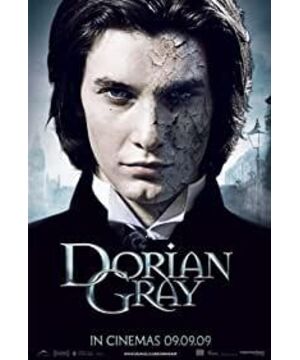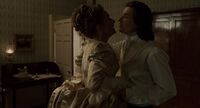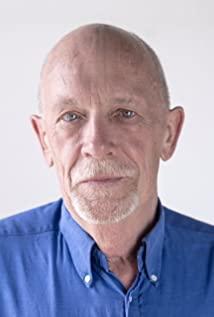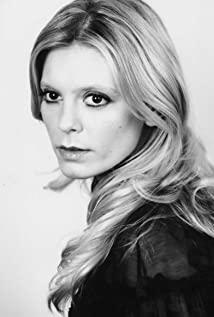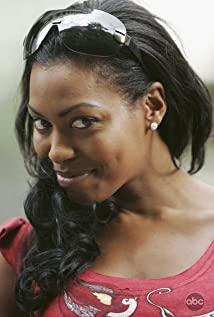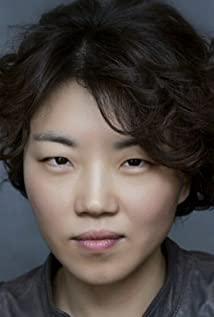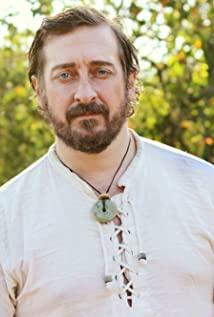"Dorian Gray" (Dorian Gray): Three Oscar Wilde
(Text: Vulcan) in
a parallel world. A person either becomes a work of art; or wears a work of art.
Loving yourself is the beginning of a lifelong romance. ——Oscar Wilde,
after watching this movie, felt somewhat unfulfilled, so I found the original of this movie to read; I can’t tell whether I prefer the movie or the original. So I watched another Wilde biographical film-"Wilde" directed by Brian Gilbert in 1997, and finally gave up. Perhaps, the comparability between the movie and the original is not very high. In my opinion, this movie should be considered relatively regular, but it is just a matter of choosing the priority of the plot.
I like this movie, I really like it; that's why I will look for the original to read after watching this movie. After reading some information about Wilde, I began to like the British genius, and then liked his works, and then films adapted from his works. Even though the order of my contact with the three seems to be a bit reversed; however, my emotional balance still seems to be so tilted.
If I have to literally follow the order in which I came into contact with the three, then I should say this: I like this movie, so I read its original work, and then I read some information about Wilde; from work to For him, my fascination gradually deepened; on the contrary, because the worship of the author had a reaction to his works and the movies adapted from his works, I became more and more fond of them.
The film may have such benefits. It only breaks through our emotional defense at a certain point, and at this point we will begin to discard the defense that we once held. The complete defeat of the point and the line brings us. A new world. This is a virtuous cycle. I think: from the film to the original, from the original to the author, from the author to the work, and finally back to the film; this is a kind of metaphysical obsession, deeper and more fanatical. This makes this movie the most perplexed and even more perplexed in my recent movie viewing notes.
Wilde himself once said: Basil Hallward is my image in my mind, Dorian Gray is my desired image, and Lord Henry Wotton is my image in the eyes of the world. In my opinion, this is in line with the theory of self, superego and id created by Sigismund Shlomo Freud in The Ego and the ld (1923) in 1923. There are a lot of similarities; it's just that Wilde broke these three mes into three specific characters and wrote them into the same novel—The Picture of Dorian Gray (1891).
From a longitudinal comparison of time, this book was written 34 years earlier than Freund's "Self and Id", although this book was not as rigorous as Freund's work and formed a normative theory. System, but to a certain extent-people always say that Wilde is an immortal genius-this may not be just a beautiful rhetoric attached to posterity. To put it another way, if this book was written later than Freund's "Self and Id", many people would probably say that it was only influenced by Freund's work.
Wilde is great. Perhaps no one will deny this at present-he perfectly interpreted Freund's related theories decades later in a more straightforward way and in a more elegant language.
In Wilde’s comments on the characters in his works, I saw the initial prototype of Freund’s self, id, and superego—Henry is Wilde’s id, a person who chased hedonism but couldn’t put it in himself. A utilitarian who realizes himself; Basel is Wilde’s superego, a pure artist who pursues the beauty of art, and a self-discipline who constantly restrains himself; Dowling is Wilde’s self, but he cannot find the so-called so-called in reality Self-perfection and self-fulfillment, he can only tell his pen.
In this article of mine, I try to interpret the three Wildes in this movie from my own perspective, the three Wildes who are divided and the three Wildes living in a parallel world.
1. Wilde's id: hedonistic utilitarianism
In fact, it’s not just Wilde, not just Henry in Wilde’s writings. Every one of us is also inseparable. There will be more or less the shadow of hedonism and utilitarianism. It’s just a shadow, and most of us don’t have it. Timely pleasure and blind pursuit of the capital, so as a last resort and stifled the strong desire of the self.
Imagine, if we, like Dorian Gray, could never worry about food, clothing, and survival, how many people would really be so willing to live a nine-to-five mechanical life; if we were also at the same time With the handsome face of Ben Barnes, how many people can stand alone, not chasing pleasure and extravagance. If we had all of this, Yan Hui praised by Confucius for such a peaceful and happy way-definitely not what we are willing to undertake. From the perspective of the id, everyone is greedy for pleasure and obsessed with utilitarianism, but we are really like Yan Hui-poor, we can only settle down, and have to restrain the id with the superego, and It is advertised as one's self with personal will, trying hard and always learning to give up the desire of the self.
When it comes to the bottom, it's not that we are lofty; it's just that we have nothing but loftyness. Therefore, we have to pretend to be innocent and lofty-anyway, we are already so poor, so we don't have to go to swollen faces and fill up fat people, and we can accept our destiny with a kind of "dauntless" spirit after confessing directly. Qing Gao was forced to come out, but since there is a realm like Qing Gao, we will grudgingly accept it without shame.
The role of Henry played by Colin Firth, really I don't hate him at all, I even like him a little bit. Even though his role in this movie is not pleasing, he is even portrayed as a villain; however, what reason do we have to criticize him? Those who are deceived by the lovable characters, Dowling’s handsome appearance and seemingly Chunliang character played by Ben Barnes, will eventually blame Dowling’s depravity on Henry, because they can go without any worries. I like Dowling; but in fact, for Henry, such a crime is more or less flaunting.
Henry is projected as Wilde’s id image in the movie. It is not his fault to advocate hedonism and utilitarianism, because everyone’s id is almost the same in nature: instinctive desire will drive us to chase the same s things. It’s just that when we are socialized, we have to cover up all of this to a great extent, and we will perform another layer of whitewashing on the part that could not be covered up in the end and behave in a more gentle way. Come out. In essence, we are no better than Henry. Henry can still speak, speak directly and nakedly, and teach all this to others; as for us, more often than not, we may not even have the courage to speak.
Henry is a pure self image. A character lacks his own self to inspire his goodness, and lacks his own superego to suppress his gloomy human nature. He can be as shown in the movie. In fact, it is quite rare and valuable, so why is he guilty? And if you use Wilde's self to interpret the role of Henry, I even think that he is actually a character image that Wilde himself has beautified. He was not too harsh, nor did he go straight to the subject. The eloquence he showed was because what he said carried the desire of many people, but he was more courageous to say it. The values and outlook on life he represents are not his own sins, but the sins of all people including us; the original sin referred to in theology is actually the little self that we can’t suppress, which brings us. It’s hard to fill.
In my opinion, there is nothing wrong with what Henry explained to Dowling. The desire of the id is to instigate the purity of the self, which is inherently a contradictory struggle in human nature, which is human nature. After all, it was the wavering self who decided to give up restraint. And even if we go back to the images narrated in the movie itself, Dowling decided to sell his soul in exchange for eternal youth and beauty. This was originally his decision alone, not Henry's business. From Dowling’s perspective, there is indeed a certain inevitability in his fall; but from Henry’s perspective, his set of absurd theories that cannot be realized on their own can be put into practice on Dowling, but there is a The question of probability.
If a sin that is not an inevitable cause is pushed onto the person with this cause, is it a bit unfair? I think Henry naturally does not have to bear the main responsibility for what happened. Basel, played by Ben Chaplin, also said that Henry kept repeating his theory to everyone he knew; but the fallen spirit we saw in the movie was only Dowling. Man, from this we can see how likely his theory is to be realized. Basel also said that no one listened to him, let alone listened to him, hearing a word from him would be hurt; it can be seen that Dowling's appearance is actually Dowling's independent choice, and he has no blame for Henry.
We may say that Henry may not be a kind person, but we cannot sprinkle nameless fire on him, let alone impose on him responsibilities that shouldn't be borne by him. Furthermore, the desire to express the id is natural and instinctive. I like this character, and even sympathize with this character—because of his existence, it gives Dowling the possibility of becoming perfect, and this so-called "perfect" doesn't belong to him in the first place. Henry is portrayed as a side of unkind human nature; and what he carries is the most unflattering part of this movie; he will bear all the scolding, and put one or even two The possibility of pure goodness is left to other characters-this, isn't it the inherent sorrow of this character?
Wilde said that Henry is the Wilde in the eyes of the world. Come to think of it, Wilde is also an orphan and lamenting; in other words, the correct understanding of Wilde's sentence should be: Henry is Wilde's understanding, the world's understanding of him. How can this not be lonely and sad. The Wilde in the eyes of the world, and the Wilde in the eyes of the world in Wilde's understanding, are still not the same Wilde; and whether the two really look like the Henry in the movie. At least in my opinion, there is a difference between the two. Even if I can't deny it, maybe the world's understanding of Wilde is exactly as he asserted.
I said that Wilde was lonely and sad because of his non-justification. I remember that Wilde was famous for his literary talents as geniuses, and another for his eloquent eloquence; but he adopted such a negative attitude toward how the world views him. Thinking about it, Wilde, who is as eloquent as he, gave up defending himself-is it because he can't argue against the world, or he thinks people in later generations can understand him better and so he doesn't bother to argue.
Genius, perhaps really does not need to be recognized and understood by mortals. Fan Zeng once said: To be a man requires self-respect and self-confidence, so aloofness is not undesirable. Indeed, when a person has the courage to be proud-he may really not be afraid of mortal slander and questioning, geniuses always go their own way, and firmly believe that their own achievements will eventually come. In future generations, our understanding of Wilde will always precipitate insights with the passage of time, and then a few confidants will emerge; therefore, Wilde himself is not worried. So even if the people in the world really think of him as Henry, he is not worried.
2. Wilde’s superego: Art for the sake of art
Even though Basel died at the beginning of this movie, but because of his existence, he provided Dowling with a vehicle for leap forward; therefore, This is a very important role. Because Wilde himself said: he is my own image in my mind, so I once defined him as a self-reflection of Wilde, but I overthrew it when I wanted to go deeper. I think Basel is a reflection of Wilde's superego consciousness in this work.
According to Freund’s theory, the superego consciousness represents social norms and self ideals, and is the highest level of personality; it acts in accordance with the principle of perfection, guides self, and limits the self, just like a stern and serious patriarch . From this theoretical basis, Basel is more like Wilde's superego than the id. According to my way of thinking, Henry is the reflection of Wilde’s self-consciousness in the movie, and Dowling is the reflection of Wilde’s self-consciousness in the movie. What Basel did in this movie is not just to guide Dowling. And limit Henry.
According to the setting of the movie, before the story begins, Wilde’s ego has already killed his superego fiercely; therefore, this movie is actually a tragedy that is doomed to run out of control, a self-directed and self-acted self by Wilde. The tragedy after indulgence.
Let's take a look at Basel's performance in this movie. Basel in the movie undoubtedly loves Dowling deeply, so he always shows a kind of meticulous care and caring from time to time; in contrast, Dowling seems a little heartless and careless. . His feelings for Dowling are obviously higher than Henry’s feelings for Dowling. Dowling is more like a proud work than a friend to Henry, and Dowling is more like a friend than a friend to Basel. Is a spiritual companion and artistic pursuit.
Henry entrusted Dowling for everything he could not achieve in the real world, and thus shaped it into the Dowling we saw; therefore, Henry didn't really care about Dowling's degeneration, let alone the depravity. To care about his soul. Basel is completely different. He loves this simple boy and makes no secret of his enthusiasm for Dowling. He is still trying to save Dowling before he can't help himself, and even gave his own for this. life. It can be said that Dowling was able to redeem his uncorrupted soul in the end, and was able to courageously destroy the portrait that allowed him to stay young before being counterattacked. It was because of Basel's self-sacrifice that gave him the possibility of epiphany.
What kind of emotion can make one person lay down his life for another person-only love, deep love can make people forget oneself, furiously disregard everything they have and only ask for the other person's Peace and consummation. This film brings the focus of the lens to the sensual love between Basel and Dowling, which is obviously a bit shallow. If it is said that carnal love is a derivative of spiritual love, it may be understandable; the emotion between the two is definitely more than that. Perhaps, the film uses a larger length and weight to describe the two of them. The spiritual attachment will be more reasonable.
Basel’s sentiment towards Dowling is more like a metaphysical Platonic sentiment, which may also involve the kind of erotic content mentioned in The History of Weathering in Ancient Rome, which may be incompatible with this article. ——In general, the concept of love in ancient Greece yearns more for the beauty of the human body. The love of sensuality is second to time. The pursuit and care of beauty may be the most original desire in Platonic emotions.
From Basel to Dowling, from their acquaintance to Basel's definition and recognition of beauty, the lens can be shown in more detail, and then it will be more natural than what we have seen. A shot of Dowling unfastening the belt of his trousers completely stifled the greater aesthetics in this aspect.
Art for the sake of art, this is Wilde's self-discipline in superego consciousness. He said that he is Basel in his own mind; it does not mean that he can really be purely artistic like Basel. Of course, Wilde in history is indeed very artistic, but how does it compare with Basel in his works? , I can’t assert for the time being. The deeper meaning of what Wilde said is: He hopes that he can purely pursue beauty, describe beauty, guard beauty, and even sacrifice his life for the beauty in his definition, like Basel.
Therefore, in order to protect Dowling, Basel will have the heart to want to destroy his most proud work, even if that work is already completely different. Basel once said: Dowling has improved his artistic sublimation space and gave him a higher level of understanding of beauty... He also hoped that Dowling could accompany him all the way so that he could be more complete in art. ...How he only measures Daolin that he loves, how could he follow Daolin, that is the beauty he longs for, the art he longs for, his endless fanaticism, and the spiritual home he longs for.
A handsome appearance and a pure heart, this is Basel's aesthetic pursuit of art, and it is also his ideal that he would rather give up his life to guard. The death of Basel in the movie was due to a violent struggle and Dowling's own hesitation; in my opinion, this also seems a bit shallow. For the pure platonic sentiment between him and Dowling, it is somewhat superfluous. If the death of Basel is made more of a voluntary choice, it may be more complete for the characterization of Basel; and for the aesthetics of the entire film, it may be elevated to another level. .
The superego guides and restricts the self; and the ego and the id will react to the superego. This is the metaphysical virtuous circle. The significance of Basel's existence lies in the aesthetic significance of this metaphysics. Basel once warned Dowling-don't believe Henry; Dowling said, I now think what he said makes sense. Basel also begged Henry—don't ruin my Dowling; it's just that Henry didn't listen to him at all.
Of course, the guidance and restriction of the superego is always not what the ego and the id will see—after all, the requirements of the superego are inherently difficult to achieve, and it will also bring pain and patience to the person’s self; therefore, the superego The guiding power and restraining power shown are so pale and weak in front of the ego and the id.
Perhaps, why most of us are equally born and ordinary and eventually returned to ordinary? Most of the time, our superego also lacks executive power, and we also let ego and idolize; if we are unable to superego, we can only interact with the great Passing by has been ordinary to death. What's even more helpless is that we all know the problem, but we are all equally powerless-always lazy, always lazy. Only a few people who are particularly determined can tend to achieve perfection and achieve greatness. So fortunately, Wilde’s superego is reflected in Basel but not just Basel, so we can see such a movie today.
3. Wilde's ego: the weakness of human nature
that has fallen farther and farther. If we happen to be young and young; if we are very satisfied with our own status quo; if we are already handsome and have no worries about life. Give us a contribution that does not seem to be too heavy now, whether we are willing to exchange it, in order to preserve all of our existing, forever.
If we are to give us a property like Dowling that can be enjoyed forever, and then give us the handsome face of Ben Barnes; if we are willing to exchange our souls, we can have both forever ...
Will you exchange it? forever Young. Always handsome. Forever the rich side. This is the weakness of human nature, let alone-you are not willing to exchange. Ask your own heart. For most ordinary people for life, even if such a terrible ending has been foreseen a long time ago, there may still be many people who resolutely choose to exchange.
I remember watching the plot unit about the devil's trade in the American drama Supernatura a few years ago: late at night, find an intersection, bury the black cat bones, the mud in the cemetery, and your own photo in the center of the intersection, and you can summon it. Crossroad Demon, you can put forward any conditions you can think of, as long as you promise to dedicate your soul to the devil in ten years; make a death contract kiss with the devil, and you can get everything you want. Only ten years later, the devil will release the Dark Dog (Dark Dog) to ask you for the reward it deserves.
In that plot unit, in fact, everyone who has done a devil's deal knows that he has only ten years, and he also knows his final ending; but this deal is really tempting, and a kiss of death can exchange too many things. Too much, so those people are happy and not tired. Even if many people work hard throughout their lives, it is rare to achieve the results of such a transaction; and everything they dream of can be obtained so effortlessly, how can those people refuse it?
I don't care about everlasting things, I only care about once owned... If there is such a choice opportunity, many people will still choose to have once. Because there is only such a glorious moment, their ordinary lives may be rewritten from now on, and they may have everything with glory. How to die is not actually the most important thing, because every day many people in this world gradually die; more importantly, how to leave a reputation after death, because so many people die, of which few can be remembered by the world... …
This is actually the weakness of human nature. We all ask for nothing, we all want to be hard to fill-if we are satisfied with all the falsehoods, most of us are willing to give everything. In fact, if you feel that you have only ten years left every day, you may be able to do many big things that you didn't even expect; but all of this requires effort, but everything seems to be at your fingertips. Even if we can only leave empty-handed in the end, many people will be willing to make such a contract with the devil—because we only want a free lunch, and we don’t want to pay; even if what we pay in the end will be all of us, but Now that we can eat free lunch for ten years, we will finish it first.
This is something our ego can't control; because the ego desires, and everything is within reach. The same goes for Wilde's self. As long as he is a human being, he will never escape all the common weaknesses in human nature; Dowling, as the reflection of Wilde's self-consciousness in this movie, is naturally inevitable. It's just that this character is the most important protagonist who has been shaped by heavy colors, so he was beautified as much as possible and portrayed in a better direction.
Watching this movie, I often have the illusion of watching "Dream of Red Mansions". In this movie, Daolin is actually like Jia Baoyu in the Grand View Garden. Almost everyone loves me and sees pity; but think deeply. , Even though he may have been a piece of jade, but he seems extremely selfish, like the innocent and innocent one in Dostoevsky's novel "The Insulted and Damaged" The naive, but extremely selfish little duke Alyosha is the same, as Toshi said: the most selfish people seem to be the most selfless.
Buddhist self, also known as ego-clinging; refers to the shortcomings of human beings attached to self, including arrogance, complacency, inferiority, greed... or too strong self-awareness and lack of collective consciousness and dedication, or too much attention to oneself and ignoring others and many more. This is so similar to the personality characteristics of Dowling in the movie; he does not need to bear any responsibility in this movie. The responsibility for the depravity is attributed to Henry in the image of the self; the responsibility for salvation is to the Basel of the image of the superego. What Dowling has to do is to dress and eat, drink and have fun, slightly sad but innocent eyes and a handsome face are enough to offset all the blame for him.
I actually like Dowling; maybe, no one who watches this movie can refuse him. It's just that the judgments in the sense are sometimes not affected by perceptual cognition. I like him, and at the same time I criticize him. Perceptual likes can overwhelm rational criticism; however, should we calmly see some truths that we should perhaps see clearly.
Perhaps, this is just an inimitable jealousy, we will envy those we can not get everything, we will also like those; However, we can not start from the bottom line of the heart, to love him sincerely. Perhaps, self-awareness does not need the approval of other consciousnesses.
Wilde said that Dorian Gray was the Wilde he was looking forward to. As you can imagine, in fact, Wilde himself should be quite envious of this character in his writing. Dorian Gray’s portrait bears all his original sins in human nature, and bears the ugliness that he cannot bear in human nature; always dress lightly, always young and frivolous, always youthful and magnificent...
Even though his mentality is as old in the end Going late, full of vicissitudes and despair, but as long as he has enough courage, he can still get eternal relief. If a person lives for a lifetime, if every day can be in the golden age until death-perhaps, this is the Wilde that Wilde expects. As a genius writer, Wilde may understand better than others what a golden age of genius means to his creative life. Therefore, we Chinese will "Injury Zhong Yong" because his golden age is too short and too short.
Finally, I want to say that this article of mine may involve too many things that have nothing to do with the movie itself. This may be related to what I experienced and felt during the writing of this article. The judges are a little bit tolerant; I never said that I am a pure film critic.
2010-4-14; Geng Yin Tiger Year, Gengchen March, the first day of Jiawu; 3:20.
-------------------------------------------------- ------------------------------
Note: Movie information.
■Title: "Dorian Gray"
■Translation: "Dorian Gray"
■Director: Oliver Parker
■Original: Oscar Wilde
■Screenplay: Toby Finlay
■ Starring: Ben Barnes\Colin Firth\Ben Chaplin
■Genre: Plot
■Length: 112 min
■Origin: UK
■Language: English
■Color: Color
■Classification: UK:18
■Format: 35mm widescreen widescreen system
■Mix: Dolby Digital Surround
■Camera: Arriflex Cameras and Lenses
■Filming format: 35 mm
■Printing format: 35 mm
■Production company: Ealing Studios
■Distribution company: Alliance Films
■Premiere date: September 9, 2009 (UK)
View more about Dorian Gray reviews


